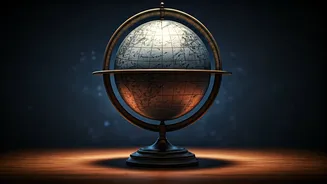Ancient Origins and History
The origins of astrology are deeply rooted in ancient civilizations, particularly in Mesopotamia, where the earliest astrological practices are believed
to have begun. Around the 2nd millennium BCE, the Babylonians observed the movements of celestial bodies, connecting them to earthly events and human destinies. This early form of astrology, primarily focused on predicting events relevant to rulers and the state, gradually spread to other regions. Astrology was integrated into the cultures of ancient Greece, Egypt, and India, each adapting and expanding its concepts. The Greeks, for instance, introduced the concept of the zodiac, which divides the sky into twelve equal segments, each associated with a constellation. This laid the foundation for the personal astrology we recognize today. The Egyptians also developed their own astrological systems, including the use of decans, which were sets of stars used to mark time and predict events. In India, astrology became an integral part of Vedic traditions, with a focus on personal horoscopes and their impact on life events. Over time, astrology experienced periods of significant influence and, at times, faced skepticism and suppression. Yet, its enduring appeal across diverse cultures underscores its significance in human history and cultural understanding.
Core Concepts Defined
At the core of astrology lie several crucial concepts that shape its interpretations. The zodiac, a band of constellations that the Sun, Moon, and planets appear to traverse, is a primary element. Each sign of the zodiac—Aries, Taurus, Gemini, Cancer, Leo, Virgo, Libra, Scorpio, Sagittarius, Capricorn, Aquarius, and Pisces—represents specific personality traits, characteristics, and life experiences. The position of the Sun at the time of birth defines a person’s zodiac sign, often used for generalized personality assessments. Planets are another essential component. In astrology, the Sun and Moon are considered planets, along with Mercury, Venus, Mars, Jupiter, Saturn, Uranus, Neptune, and Pluto. Each planet symbolizes different aspects of human life: the Sun represents the ego and vitality, the Moon embodies emotions and intuition, and Mars symbolizes drive and action. The planets' positions in the zodiac signs and their relationships with each other are believed to influence an individual's personality, relationships, and life path. Astrological charts, or birth charts, are visual representations of the positions of the planets at the exact time and place of a person's birth. These charts are meticulously crafted maps that reveal the relationships between planets, signs, and houses (sectors of life), providing insights into various life aspects.
Impact on Cultures
Astrology's influence has deeply permeated various cultures throughout history. In ancient Greece, astrology was intertwined with philosophy, medicine, and politics, shaping societal perspectives. Astrologers served as advisors to rulers and provided insights into personal and societal events. The Romans adopted and adapted Greek astrological practices, integrating them into their empire's governance and public life. Astrology influenced religious beliefs, architectural designs, and even military strategies. In the Middle Ages, astrology flourished in the Islamic world, where scholars preserved and expanded astrological knowledge. Arabic astrology, combined with Greek and Indian traditions, produced significant advancements in astrological techniques and philosophical understanding. During the Renaissance, astrology experienced a resurgence in Europe, influencing art, literature, and scientific pursuits. Astrologers gained prominence in royal courts, providing guidance on critical decisions. In India, astrology is still a prominent part of daily life, particularly in matters of marriage, career, and personal decisions. Indian astrology, or Jyotisha, utilizes a unique set of astrological tools and calculations, reflecting the deep cultural significance of astrological practices. Despite periods of skepticism and scientific critique, astrology continues to resonate across cultures, demonstrating its enduring impact on human thought and societal customs.
Evolution and Modern Usage
Over time, astrology has evolved, adapting to changing societal contexts and technological advancements. Traditional astrology, with its roots in ancient practices, remains relevant, while newer forms of astrology have emerged. These include psychological astrology, which emphasizes the psychological and emotional aspects of individuals, and mundane astrology, focused on forecasting societal trends and events. The rise of the internet and digital technology has significantly impacted astrology, making astrological information more accessible than ever before. Online platforms and mobile applications provide instant access to horoscopes, birth chart calculations, and astrological readings. This digital accessibility has expanded the reach of astrology to a global audience. Yet, this accessibility also raises concerns about the quality of astrological advice, emphasizing the need for discerning consumption. Despite ongoing debates about its scientific validity, astrology continues to be a popular subject of study and personal exploration. Contemporary practitioners blend traditional methods with modern insights, tailoring astrological practices to meet individual needs and preferences. The continued interest in astrology showcases its ongoing relevance in the modern world, as individuals seek deeper understanding and meaning in their lives.





















